In Memory of Robert Apte
1924 – 2019
Selected Portraits from a Life of Travels
By Robert Apte
Click the photos above to view slideshow.
To see more of Robert Apte’s photography visit Ten Penguins on the Roof of the World.
Memories of RZA 6/13/1924-1/16/2019
By Michael Apte
How do you describe a larger-than-life character? Growing up with one’s parents, it is unlikely that you will see the depth and breadth of who they are. My daddy was the guy who liked to read me silly stories and do projects. I grew up with a sense that I could fix anything, and that with a tool in hand, I was in control of my environment. I got that from my dad. As a very little boy, I would follow him around with a screwdriver in my hand as he went about doing repairs on our apartment, and on the number of apartments in the converted aged Oakland Victorian building that my parents owned and managed. He was my hero. In my mind, he could do anything. From this period of my early life, I remember the radio blasting classical music all weekend. I remember hounding my dad to show me the picture of the man who burned himself (a photo he had taken during the war), or being very scared by the picture that he had taken of himself with a liquor bottle that we called “The time when daddy got drunk.”
I only have one memory of when my dad was actually inebriated, when he drove us the wrong way down a one-way street and a flight of stairs in Porto, Portugal. He was a very sober man; in love with the world, and its beauty. He had no need for stimulants. He was turned on. He needed only a strand of music, a new plant for the garden, a new vista, or an interesting new person to become rhapsodic. He loved the California coastline and mountains. Early in my childhood we started going to the Carmel Highlands, camping on our small property and exploring the natural beauty of the stretch from Monterey Bay to Big Sur.
In 1959, when I was 5 and Dan was about 3, we moved to England. Dad had a Fulbright Scholarship after he had received his Masters in Social Work at UC Berkeley. He studied at the London School of Economics. He and our Mom had a thirst for adventure. Barely a month would go by when we didn’t go on some road trip. Post-war Europe was inexpensive for Americans, even for struggling American students. We had a book called Europe on $5 a day. It was well used. The Fulbright posting was only one year, but during that time we went by car and boat to Belgium, Holland, Luxembourg, France, Spain, Morocco, Scotland, Wales, Austria, Italy, Israel, Turkey, Greece, and Cyprus. During the working days, dad was aloof, and we had little idea what he was doing. He was involved and difficult to reach. But all of a sudden there would be a flurry of packing and off we would go. We were encouraged to look out the window of the car, describe what we saw and compare it to other experiences. We were being given lessons in geography, culture and ethnography. Dad became carefree. Somewhere along the way, he got a chromatic Honer harmonica. He had a real facility for that instrument and would blast out traditional songs from his youth such as Oh Susanna, and Jimmy Crack Corn.
It was on these roadtrips that dad started to really develop his photographic technique. We would stop in a village somewhere, and out would come the camera. We’d walk around the town or market square, and dad would be focusing on a vista, or group of people, workplace, or mother and child.
We lived in London again, for 2 1⁄2 years, as dad labored over his Ph.D., studying the British practice of halfway houses designed to help people recovering from hospitalization for mental illness re-enter society. I believe that his work was seminal in the creation of community mental health systems in the U.S., and his exploration of Britain’s system is of interest to this day. Dad’s study was off limits. Typewriter on the table, papers and cards lined the room. We wondered sometimes what had happened to him. But, then a long weekend or holiday would come up, and off we went. France, Germany, Portugal, Madeira, Spain, Corsica, Sardinia, Greece, Crete, Poland, Czechoslovakia, Austria, Italy…
I remember the night that we pulled into a campground in the Tatra Mountains after a long day’s drive from Prague. It was pouring rain, almost snowing. We were tired, and dad had misgauged how far we had to drive. As we pulled in, dad knocked over a man’s motorcycle. I had such a bad feeling about it. Next thing I know, dad is making friends with the motorcycle owner, helping him right the bike. The nice guy saw the situation with the bad weather. He instantly started to help my dad set up a tent in the pouring rain. Dan was asleep in the car, but the man put me into a sleeping bag with his two beautiful daughters. I thought that I had died and gone to heaven with those two Czech beauties. Next morning the sun was out and we resumed our trip.
The way in which dad could instantly bond with people everywhere, despite nationality, language, age, privilege, was one of his true gifts. I can’t count the time where we would be somewhere, could be Berkeley, Belgrade, or Beijing when all of a sudden there Dad would be in the middle of an intense conversation about life with a complete stranger. He had a way of drawing people out and getting them to tell him about their life, struggles, interests, hopes and aspirations.
Dad’s love for beauty was intense, but also very strongly defined. If they didn’t meet his definition, they were anything but beautiful. Good music, good art, good food, good culture. If they didn’t match up, they were out.
As an adolescent (and maybe for a lot longer) this led to conflict, but Dad was unrelenting on his opinion. I remember him talking about being exposed to Tex-Mex music when he was boot camp in Texas during the war, and how he detested it. Also how he befriended another soldier with whom he would go to the Red Cross building to play classical records together. That music was his solace. His knowledge of classical music was amazing, as was his collection of recordings.
After dad’s Ph.D. came his years as Berkeley Professor. Under the encouragement and mentorship of Professor Lydia Rappaport, he took on development of the Community Mental Health Program in the School of Social Welfare. As a young adolescent I was unaware of the stress behind his assumption of the professorial role. I think that it was a real growth period for him, and I know from the students of his who I have met over the years, just how great a teacher he was. Others can perhaps talk about what it was that he was doing – I never really knew that much about it. I know that his first book other than his dissertation was a textbook on Social Welfare co-written with Walter Friedlander, a colleague who also had been the professor of both my mother Evelyn and him in about 1950.
From Dan and my point of view, the great thing about his professorship was that it gave him back to us in the summers. Summer 1967 we were back in London for a month, followed by an outrageous road trip across all of Europe. Starting from London we took our 2-stroke Saab across the continent into Soviet Russia. Entering into the Ukrainian USSR from Romania, we arrived in Odessa and caught a ferry boat across the Black Sea to Sochi. Then up into the Caucus Mountains and Tbilisi in Soviet Georgia, and then South to Yerevan Armenia at the northern border of Iran. 1967 was the first year that Americans were able to get a visa to travel in the USSR and dad was determined to make the trip. In all it was about a 6000-mile round trip. It was an incredibly educational experience for us all. On the return drive we stopped by Poltava, the hometown of the Boyarsky family, our Ukrainian Jewish ancestors. Although a Boyarsky was found in the Poltava phone book, Dad decided not to contact them for fear of getting them tangled up with us westerners and the Soviet police.
My parents purchased a very nice Russian camera for me at the Intourist store in Yalta. It was called a Fed, and was a Russian Leica knockoff. Thus dad allowed me to enter into his world of photography. Part of his routine was to get up at sunrise in whatever town we were staying, and take advantage of the early light and waking populace to get interesting photographs. I was proud to be invited and we had many fun days wandering around the old-world towns as he showed me his photographic tricks.
I have met very few people who were lucky enough to have had the type of travel experience we did as children, and I give my parents huge kudos for giving us the opportunity to see so much of the world. It certainly opened my horizons immensely.
1969 was a special year for our family, and particularly for dad; we moved to the house on Indian Rock. Dad loved this house. He had always loved to garden, but the scope that the new garden gave him seemed unlimited. He would spend hours every weekend planting and landscaping. At its height, the garden was a masterpiece, with its exotic plants and trees alongside natives, the big rock outcropping, and fishpond full of koi. This garden provided him immense joy until his last days.
In the 1970s Dan and I had become balky teenagers and self-sufficient enough to unleash the parents to travel on their own. The 1970s summer vacations took mom and dad and camera on a romp around the world, visiting both American Continents, South and Southeast Asia, Pacific Islands, and more Europe. Bob’s photographic fervor continued. It was during these years when dad’s exposure to the Himalayas ignited his interest in Tibetan culture and issues, although it was not until the ‘80s when he became a vocal proponent of the Tibetan movement. Dad’s photographs of life in Asia, and particularly Himalayan life are stunning. Travel in Japan sparked his love for Japanese architecture and art, and led to the quirky design and construction of the Carmel Highlands Cabin.
Another turning point for dad occurred in the early 80’s when he parted ways with the University. He became entangled in a legal battle over wrongful termination. It was a shock. Dad was able to win a landmark case over the UC system, and receive proper compensation; however, he needed to restructure his life. In hindsight, this was a blessing in disguise. His creative energy exploded. In order to replace the lost professor salary, dad parlayed the old Oakland Victorian building into a couple of Berkeley commercial properties; managing them pretty much single-handedly, he was able to create a comfortable lifestyle for him and mom, also allowing them to be generous with Dan and me (and Ursula) during and after college years, and the grandkids when they came along.
Dad and mom continued their extreme traveling including high altitude trekking, in the ‘80s and 90s, with multiple trips to Europe, Kauai, South Pacific, South and Central America, Japan, South and Southeast Asia. Perhaps most importantly in terms of dad’s work as a photographer and ethnographer, several visits to Tibet, Bhutan, Nepal, Ladakh, and Dharamsala in North India. The photography from this period is well documented on Dad’s website, eyevuetheworld.org that was started in the 2000s.
The Tibetan Buddhist connection with the travels came out first in Dad’s book “Three Kingdoms on the Roof of the World,” published in 1990. With his photography and text he explored the rich and beautiful culture of the people and land of the region. This work also began dad’s time as a serious scholar of Tibetan studies. The trips to Dharamsala brought him in contact with the seat of the Tibetan government in exile, and remarkably started a brief friendship that he and mom had with His Holiness, the Dalai Lama, who wrote the Forward to his book.
The work on Tibet continued in a collaboration with Andres Edwards, culminating in their book “Tibet: Enduring Spirit, Exploited Land,” published in 1998 This book was important in the way it related the traditional land management practice of the Tibetan Nomads to our current global environmental predicament, and particularly the impact that the Chinese have had on the peoples and land of the Tibetan plateau. The work is timely three decades later. Although the book may now be found for less than 3 bucks on Amazon, it remains an important work.
In the ‘80s, a new version of Bob arrived; “2-Daddy.” Coined by his first grandson, Joshua, the name stuck to his last days. 2-Daddy was beloved by Josh, Zachary and Oliver who all developed firm bonds with him. In their younger years it was through play. In his teens, Josh and dad shared their love for photography and spent many hours together in the darkroom. Zac and his grandfather discovered a mutual interest in geography and maps. Oliver bonded with 2D over art.
To complete the family, Hillary, Dan’s daughter, won Dad’s heart as his clever granddaughter. He was ever impressed by her pursuit of education with a force of determination and sense of social justice.
The travels slowed down a bit in the 2000’s, but at the same time, dad became more prolific, if possible. The two seminal travels during the period were to Antarctica and Papua New Guinea. Dad came back with a plethora of photos and went to work on large format prints. At this point, he began to exhibit his work; most notably at the SFMOMA.
In 2005 I was blessed to meet dad in Guilin China, and travel with him for a week. We spent most of our time in Yangshuo, a small town on the Li River. This was dad’s third trip to Yangshuo, and was a place he loved to photograph, with its interesting geological features and fascinating occupants who lived on the river. On our second morning there, dad said, “let’s go down and see the river people.” He had a big envelope in his hand, but I wasn’t sure exactly what it was. When we got down to the river, which had to be crossed by hiring a skiff with a pilot using a pole for navigation, dad started pulling out photographs of people from the envelope. Soon, we had a crowd of people around us grabbing and poking at the photos, exclaiming and even crying. These were photos of the families of these people from 20 and 10 years ago. Many of them had passed on, and the people had not seen images of them since their passing. It was a very poignant moment that brought home to me the power of dad’s vision and worth of his travels. Although dad was 81, he insisted on energetically exploring. We traveled around on rented bicycles and had all kinds of adventures, being invited home by villagers to share a meal of fresh farm vegetables.
After the China trip, he and mom made a few more international trips, but the travel was clearly becoming more difficult. For dad, mobility had become his major impediment. Finally, travel contracted to trips to the condo on Kauai, which was comfortable and accessible. It was in Kauai in October of 2014 that dad had a major heart attack. He was flown to Honolulu where he had bypass surgery. With a stent in place, he recovered and resumed a more restricted, but fairly normal lifestyle. It was a turning point though. We saw a number of changes, with some fairly serious hospitalizations. Eventually, it became clear that dementia was setting in. This was compounded with a swallowing problem that made eating very arduous for him.
These last years were interesting. Dad really withdrew into himself. He had his script of things that he would say. If asked how life was for him, he was always upbeat. He expressed his love for family, beauty, nature, music, art. His days became circumscribed with a few pleasurable activities. He loved his morning hot tub, and was dogged in his two daily sessions on his exercise bicycle. He read, listened to music, and had his evening TV news. His routine was made more tolerable with the wonderful assistance of Mark and Tess, who attended his every need. It was eventually clear that dad had Alzheimer’s. Mom diligently cared for him 24/7 as well. Unfortunately, he became progressively weaker as his interest in eating became more and more restricted.
On January 5 dad lost his balance while on his walker, and fell. What at first seemed like a bruise turned out to be a fractured hip, and dad underwent a hip replacement surgery at Kaiser Oakland. The initial prognosis of recovery became a final fight for dad. Many of dad’s close family were able to come by for a last salute. We were able to bring him home for the last couple of days. He passed away on January 16 in the evening.
Rest in peace dear daddy.
![]()
Please add a comment below remembering Robert.

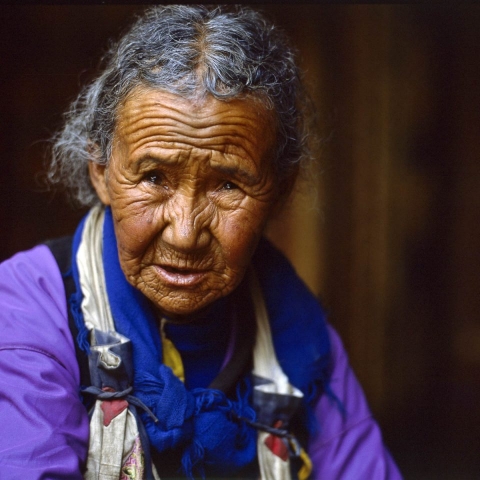
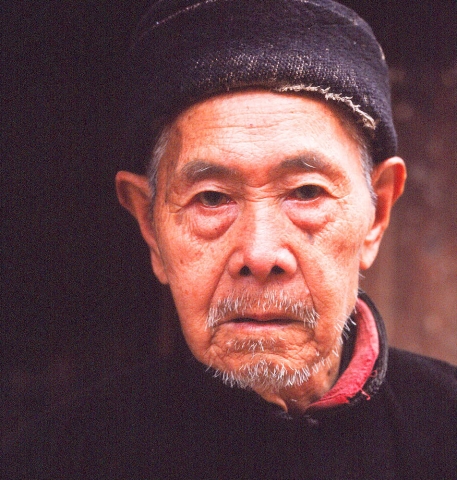
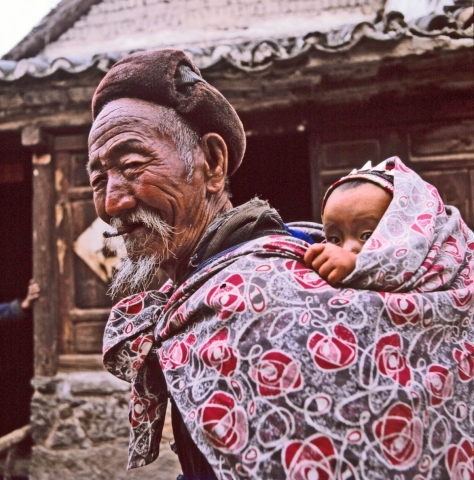
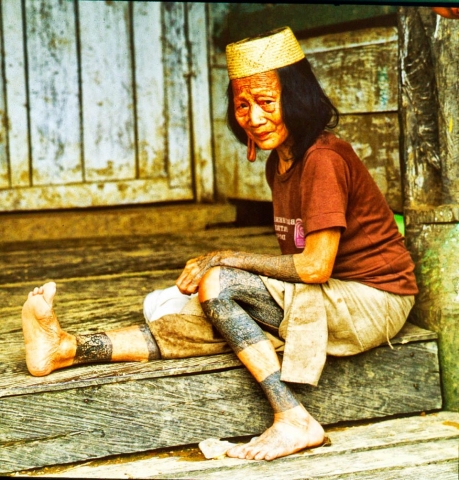
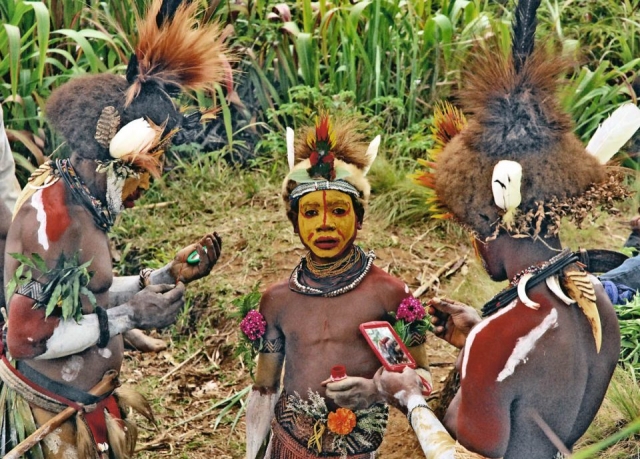
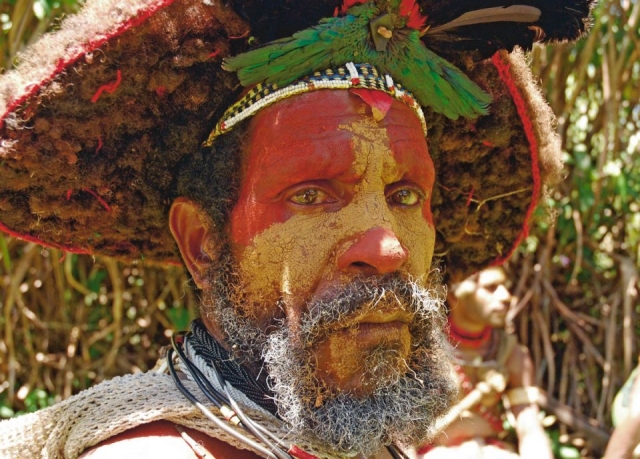
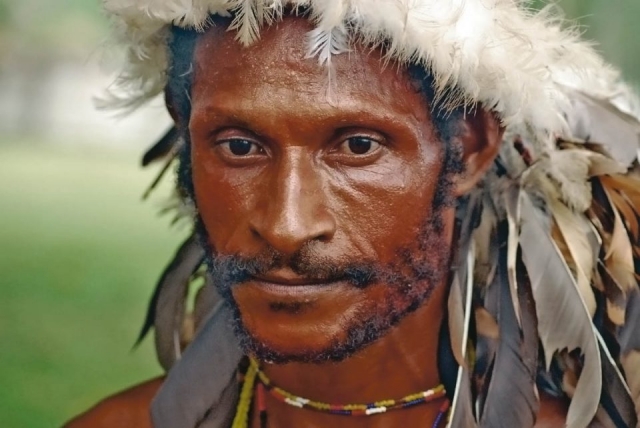
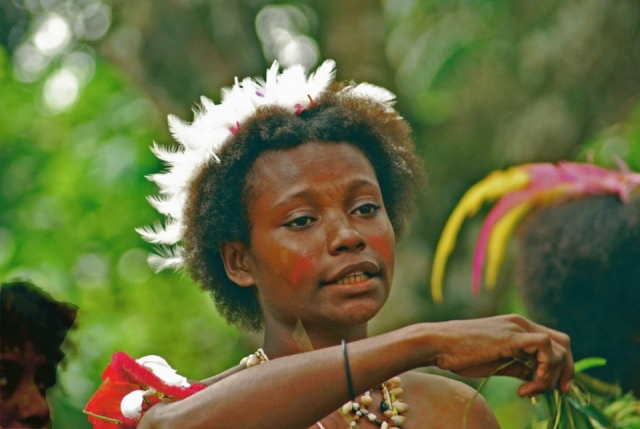
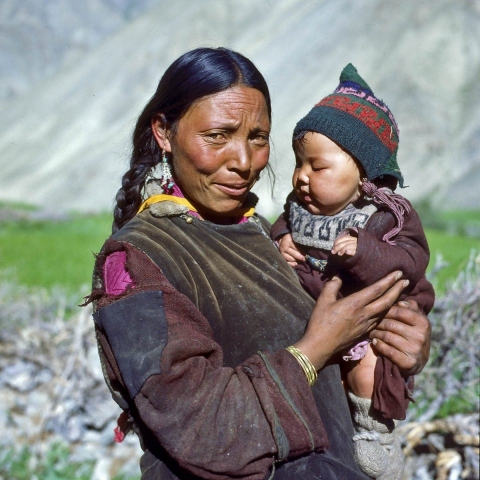
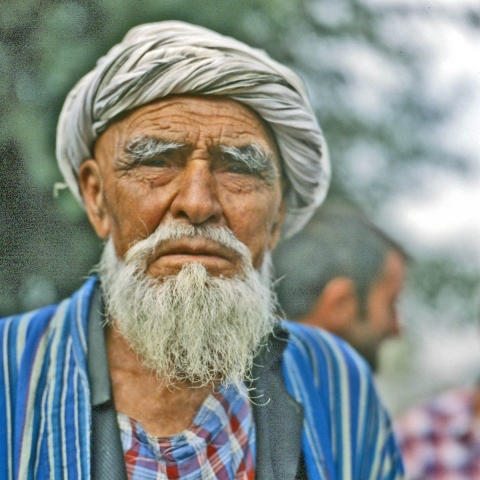
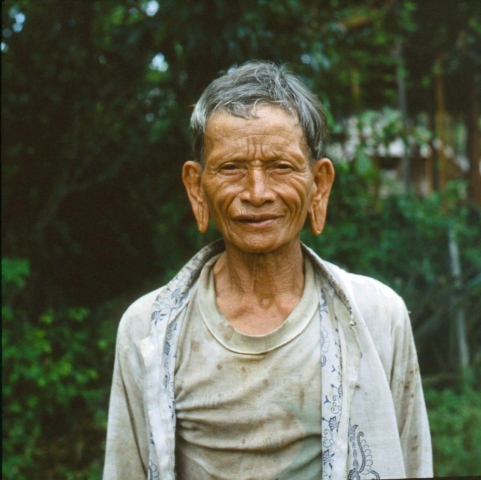
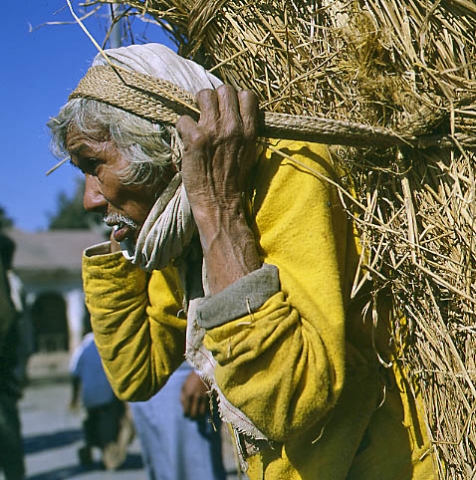
dan - March 27, 2021 @ 6:09 pm
Thanks for sharing your dad’s story and his wonderful photography.
Janet Hinze - March 21, 2021 @ 11:34 am
What an incredible life. Your portrait of your father is wonderful. Your family was so fortunate to have such amazing adventures. I am humbled; my excursions into the world seem so paltry by comparison. And the portraits are astounding. Thank you for sharing this citizen of the world.
Margaret Kokka - March 20, 2021 @ 11:04 am
Your tribute to your daddy was loving and memorable. Thank you for describing him so fully that he was recreated for me with all of his lifelong loves of art, music, travel, family and I was particularly moved by your words about how he developed his relationship with his sons and grandsons.
Hillary Smith - March 19, 2021 @ 12:49 pm
This is a beautiful tribute to him. Thank you for taking the time to honor him in this way, and to share your perspective with all of us. I am so grateful for his journey and your telling
Pat Gallagher - March 18, 2021 @ 4:41 pm
MIke, this is a marvelous account of the life, in all its vicissitudes, of an extraordinary man. You have crafted a rich portrait in words. And there is, under it all, the story of your love for him. He has left a rich legacy in you. He would be so proud.
Shari Lowen - March 18, 2021 @ 4:02 pm
Mike, what a beautiful homage to a life well lived. It was wonderful to be reminded of forgotten memories and to gain new insights into Uncle Bob’s joie de vivre. I am forever grateful to be one of the lives Bob touched. Love, Shari
Marjorie Roth - March 16, 2021 @ 12:51 pm
A wonderful tribute, Michael, so full and real, bringing Bob back so vividly. Thank you so much.